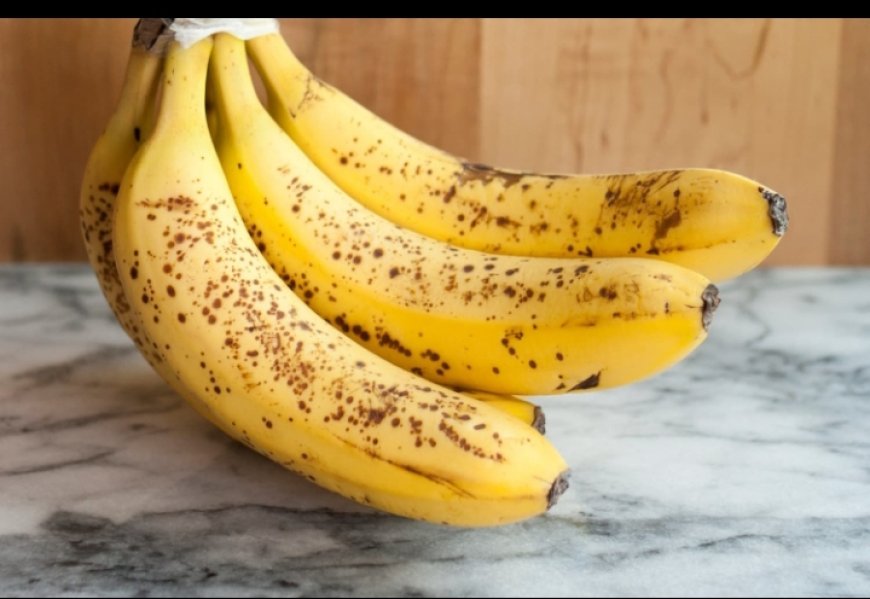Natural Foods That Help Improve Sleep Apnea and Boost Sleep
Struggling with sleep apnea? Your diet could make a difference. Explore five science-backed foods that naturally support relaxation, improve oxygen flow, and help you sleep more peacefully at night.

5 Foods That Naturally Help with Sleep Apnea
Getting a good night’s sleep shouldn’t be a struggle but for millions of Americans living with sleep apnea, it often is. This common sleep disorder causes breathing to repeatedly stop and start during the night, leaving you tired, foggy, and restless the next day.
While medical treatment and lifestyle changes are key to managing sleep apnea, what you eat also matters. Some foods can help relax your muscles, reduce inflammation, and even improve your breathing while you sleep.Let’s explore five foods that naturally help with sleep apnea and how you can include them in your everyday meals.

1. Fatty Fish (Salmon, Tuna, and Mackerel)
Fatty fish are among the healthiest foods you can eat and they’re especially beneficial for people with sleep apnea. These fish are loaded with omega-3 fatty acids and vitamin D, nutrients that support both your heart and sleep health.
Omega-3s help your body regulate serotonin, a brain chemical that controls sleep cycles and mood. Studies also show that people with higher levels of vitamin D tend to experience fewer sleep disturbances and better overall rest.
How to enjoy:
Grill or bake salmon, tuna, or mackerel for dinner two to three times a week. Pair it with steamed vegetables or a side of brown rice for a heart-healthy meal that supports restful sleep.
2. Bananas
Bananas are more than a convenient on-the-go snack they’re a natural sleep aid. This humble fruit is rich in magnesium and potassium, minerals that help relax your muscles and prevent airway obstruction, one of the key triggers of sleep apnea.Bananas also contain tryptophan, an amino acid that helps your body produce melatonin your natural sleep hormone. This combination can help calm your body and prepare you for deeper, uninterrupted sleep.

How to enjoy:
Eat one banana about an hour before bedtime, or blend it into a smoothie with almond milk and honey for a relaxing nighttime drink.
3. Leafy Greens (Spinach, Kale, and Collard Greens)
Leafy green vegetables are nutritional powerhouses that support every system in your body including your respiratory and cardiovascular health. They’re rich in magnesium, calcium, and antioxidants, which help reduce inflammation and improve oxygen flow.For people with sleep apnea, these greens can make breathing easier by supporting healthy airway function and reducing oxidative stress in the body.
How to enjoy:
Add spinach to your morning eggs, toss kale into a smoothie, or enjoy collard greens as a side dish with dinner. Try to include at least one serving of leafy greens in your daily diet for noticeable results over time.
4. Almonds and Walnuts
When it comes to better sleep, nuts like almonds and walnuts are some of the best bedtime snacks you can choose. Both are packed with melatonin, magnesium, and healthy fats that promote muscle relaxation and reduce nighttime restlessness.
Melatonin helps regulate your sleep-wake cycle, while magnesium eases tension in your muscles and nerves two major benefits for people who experience interrupted sleep due to apnea.
How to enjoy:
Eat a small handful of unsalted almonds or walnuts about 30 minutes before bed. You can also sprinkle crushed nuts over oatmeal or yogurt for a healthy evening treat that supports restful sleep.
5. Chamomile Tea
While technically not a food, chamomile tea deserves a spot on this list because of its powerful sleep-promoting properties. Chamomile contains apigenin, an antioxidant that binds to brain receptors and promotes relaxation.
It’s also known to reduce mild inflammation, which can help soothe the airways and ease snoring two common issues for people with sleep apnea.
How to enjoy:
Brew a warm cup of chamomile tea about 30 minutes before bed. Add a teaspoon of honey if you like a touch of sweetness. Make this part of your nightly routine to calm your body and mind before sleep.
Additional Tips for Managing Sleep Apnea Naturally
While these foods can help, they work best when combined with healthy lifestyle habits. Here are a few extra steps you can take to improve your sleep quality:
Maintain a healthy weight: Even a small amount of weight loss can help reduce pressure on your airways.
Avoid alcohol before bed: Alcohol relaxes your throat muscles and can make apnea symptoms worse.
Sleep on your side: This position helps keep your airway open and reduces snoring.
Exercise regularly: Physical activity helps strengthen your respiratory system and improves sleep patterns.
Stick to a routine: Going to bed and waking up at the same time every day helps regulate your body clock.
Finally,There’s no single food that can cure sleep apnea, but eating a nutrient-rich, anti-inflammatory diet can make a noticeable difference in how you sleep and how you feel during the day.By including foods like fatty fish, bananas, leafy greens, nuts, and chamomile tea in your daily routine, you can naturally support your body’s ability to breathe easier and rest better.
If you still experience loud snoring, frequent awakenings, or daytime fatigue, make sure to consult a healthcare professional. Early diagnosis and treatment can significantly improve your health and quality of life.







